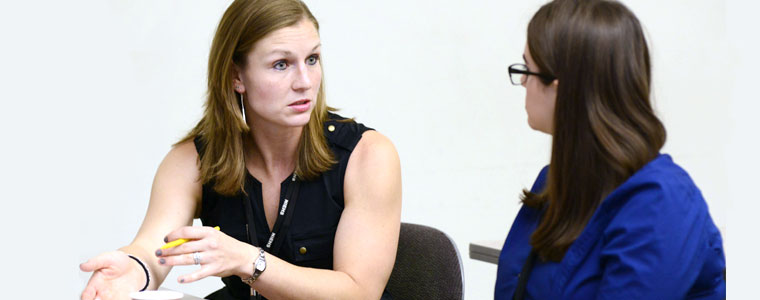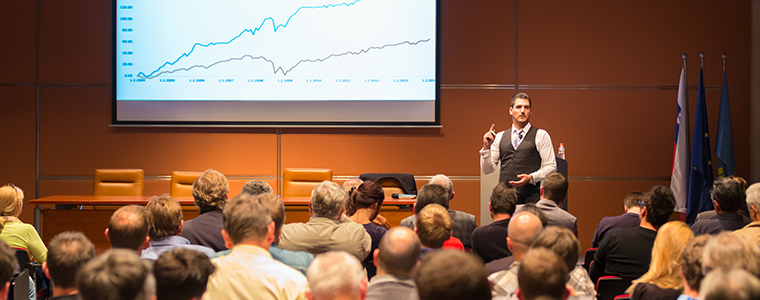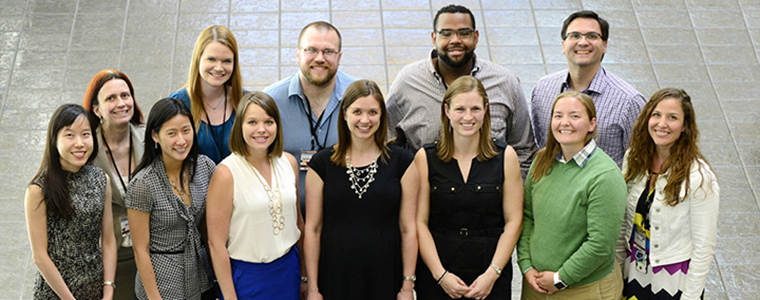Communication
Fellows' Career Development

Communication
Fellows' Career Development
Communicating science to peers and the general public is a very important aspect of scientific research. NIEHS and NIH offer plentiful courses and resources to help trainees become effective communicators.
CUSP Program
The Communicating and Understanding Science in Plain Language (CUSP) Program is a unique initiative aimed at helping NIEHS fellows communicate their research effectively in one to two minutes.
Mission and Goals
- Enhance Communication Skills: Train fellows to deliver concise, understandable, specific, and persuasive explanations of their work.
- Engage and Inform: Help scientific staff present their research to non-specialists and improve public understanding of scientific work.
- Promote Collaboration: Foster a culture of effective communication and collaboration across different departments.
Program Highlights
- Interactive Workshops: Participate in hands-on sessions to craft and refine your CUSP pitch.
- Peer Review: Receive feedback from colleagues to enhance your presentation.
- Follow-Up Session: Come back and practice your pitch for an audience of peers and non-scientific and scientific staff.
Scientific Writing from the Readers' Perspective
Speaker: George D. Gopen, Ph.D., J.D.
The approach used by Gopen is simple in concept and yet highly detailed in its presentation and sophisticated in its effect. It is based on a single idea: to improve your writing, learn how readers go about their reading. Dr. Gopen and his associates have discovered that readers tend to have relatively fixed expectations concerning WHERE to look for the arrival of certain KINDS of information. This holds true at the sentence level, in connections between sentences, and within paragraphs. As readers, we intuitively understand these expectations, but we need to become consciously aware of them in our role as writers. Dr. Gopen’s workshop will make that which you understand intuitively as a reader available to you consciously as a writer.
You can learn more about about Dr. Gopen's approach to writing in:
Gopen, G.D., and Swan, J.A. (1990) The Science of Scientific Writing, American Scientist 78: 550-558
NIH Video Cast: Scientific Writing from the Reader's Perspective (Day 1) (Day 2)
How to Deliver a Knockout Presentation: A Complete How-to-do-it Guide
Speaker: Humphrey Hung-Chang Yao, Ph.D.
Giving a presentation is one of your only opportunities to personally inform the public and scientific community about your research. Presentations prove why your research is important as well as how good of a researcher you are. A polished, memorable presentation helps you land a job, secure a grant, receive promotion, and win respect from your peers. On the other hand, no matter how groundbreaking your research findings are, a disorganized, plain presentation leaves a dull impression on the audience and even casts doubt on the credibility of the results. Ironically, few of us have received guidance on how to deliver an effective seminar. We learned from our bosses, lab mates, and other colleagues’ presentations, which might have been bad examples containing destructive mistakes. The purpose of this workshop is to lead you through the basic steps of preparing a focused, targeted, and convincing presentation. You will learn tried-and-true tips and techniques from case studies and self-evaluations. This practical guide may not win you an Oscar for the best presentation, but it will definitely enhance your presentation skills and make you a better communicator.
Three Minute Communication Challenge
Speaker: 15 NIEHS Fellows
“So, what type of research do you work on?”
How you answer that question will depend on who asks it: your neighbor, a researcher outside of your field, your mother? What if you’re interviewing for a job and your interviewer is not a scientist?
Explaining complex research is a challenge for all scientists, and this critical skill requires practice. Big Picture - Small Talk is a seminar series focused on topics in Environmental Health & Science for a General Audience and fellows who participate are issued this challenge:
In 3 minutes or less, explain (without slides!): 1) what your research entails, 2) the broader impact on science and society, and 3) what you have personally gained from your experience at NIEHS.
NIH Fellows Editorial Board
The NIH Fellows Editorial Board offers fellows a free, confidential, scientific document-editing service and gives fellows who join the Board editorial training and experience.
Writing for the NIEHS Environmental Factor Newsletter
Writing for the NIEHS Environmental Factor newsletter has helped numerous trainees launch their careers into scientific writing and other job fields.





